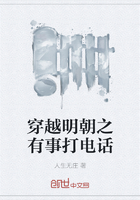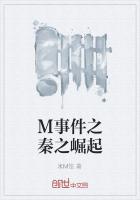"I think so," said he. "Not that any of these fellows know English, but we'll be more comfortable over at my place. Your health, Dodd."
And we took wine together across the table.
Thus had this singular introduction passed unperceived in the midst of more than thirty persons, art students, ladies in dressing-gowns and covered with rice powder, six foot of Siron whisking dishes over our head, and his noisy sons clattering in and out with fresh relays.
"One question more," said I: "Did you recognise my voice?"
"Your voice?" he repeated. "How should I? I had never heard it--we have never met."
"And yet, we have been in conversation before now," said I, "and I asked you a question which you never answered, and which I have since had many thousand better reasons for putting to myself."
He turned suddenly white. "Good God!" he cried, "are you the man in the telephone?"
I nodded.
"Well, well!" said he. "It would take a good deal of magnanimity to forgive you that. What nights I have passed!
That little whisper has whistled in my ear ever since, like the wind in a keyhole. Who could it be? What could it mean? I suppose I have had more real, solid misery out of that ..." He paused, and looked troubled. "Though I had more to bother me, or ought to have," he added, and slowly emptied his glass.
"It seems we were born to drive each other crazy with conundrums," said I. "I have often thought my head would split."
Carthew burst into his foolish laugh. "And yet neither you nor I had the worst of the puzzle," he cried. "There were others deeper in."
"And who were they?" I asked.
"The underwriters," said he.
"Why, to be sure!" cried I, "I never thought of that. What could they make of it?"
"Nothing," replied Carthew. "It couldn't be explained. They were a crowd of small dealers at Lloyd's who took it up in syndicate; one of them has a carriage now; and people say he is a deuce of a deep fellow, and has the makings of a great financier. Another furnished a small villa on the profits. But they're all hopelessly muddled; and when they meet each other, they don't know where to look, like the Augurs."
Dinner was no sooner at an end than he carried me across the road to Masson's old studio. It was strangely changed. On the walls were tapestry, a few good etchings, and some amazing pictures--a Rousseau, a Corot, a really superb old Crome, a Whistler, and a piece which my host claimed (and I believe) to be a Titian. The room was furnished with comfortable English smoking-room chairs, some American rockers, and an elaborate business table; spirits and soda-water (with the mark of Schweppe, no less) stood ready on a butler's tray, and in one corner, behind a half-drawn curtain, I spied a camp-bed and a capacious tub. Such a room in Barbizon astonished the beholder, like the glories of the cave of Monte Cristo.
"Now," said he, "we are quiet. Sit down, if you don't mind, and tell me your story all through."
I did as he asked, beginning with the day when Jim showed me the passage in the _Daily Occidental_, and winding up with the stamp album and the Chailly postmark. It was a long business; and Carthew made it longer, for he was insatiable of details; and it had struck midnight on the old eight-day clock in the corner, before I had made an end.
"And now," said he, "turn about: I must tell you my side, much as I hate it. Mine is a beastly story. You'll wonder how I can sleep. I've told it once before, Mr. Dodd."
"To Lady Ann?" I asked.
"As you suppose," he answered; "and to say the truth, I had sworn never to tell it again. Only, you seem somehow entitled to the thing; you have paid dear enough, God knows; and God knows I hope you may like it, now you've got it!"
With that he began his yarn. A new day had dawned, the cocks crew in the village and the early woodmen were afoot, when he concluded.















